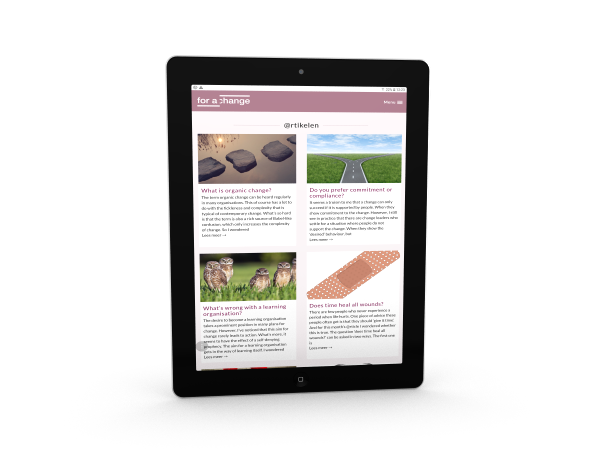My kitchen table is full of 1,000 puzzle pieces. On the box is a picture of Notre Dame.
I know exactly how I am going to crack this puzzle: first the corners, then the edges and then fill in each area. The sky is the least fun part. I’ll save that for last.
Even with this step-by-step plan, I know that I am entering a search process that is anything but efficient. Countless pieces will pass through my hands dozens of times before I finally hear the liberating click.
That is very different in organisational change
Organisational change is not a Ravensburger puzzle. It is a different kind of searching. Because there is no picture. There is no step-by-step plan. You don’t even know how many pieces there are or whether the piece you’re holding in your hand actually belongs to your puzzle. Pieces never click together precisely.
And you certainly can’t afford to save the least attractive part until last.
So if making puzzles isn’t efficient enough, it’s best to abandon it altogether in a voyage of discovery.
Right?
No.
You don’t want to waste your precious energy on an unpredictable change assignment either. When something is really at stake, there is no time to lose. Every turn you have to retrace your steps is a disappointment. Every conversation that doesn’t move you forward is frustrating. Every euro spent on a solution that doesn’t work is a waste.
Efficiency may be an unattainable ideal in a search, but that is no reason not to strive for it.
How do you do it?
Efficient searching means always thinking two pieces of the puzzle ahead. Each puzzle piece is a question you ask yourself:
- Your first puzzle piece is the question: what do I think the problem is?
- The second puzzle piece is the question: with whom will I discuss this first?
With the first question, you recognise that your role as change agent depends on your sense of urgency. And with the second question, you realise that you can only move together if that sense of urgency is shared.
So?
Organisational change is nothing other than a long conversation you enter into with countless people with whom you search for solutions to a shared problem.
As soon as you feel that the shared sense of urgency is subsiding and you are no longer talking to the people who can solve the problem, you know that you are wasting valuable energy.
Then it’s time to bring efficiency back into the search.
Annemarie Mars, January 2022

